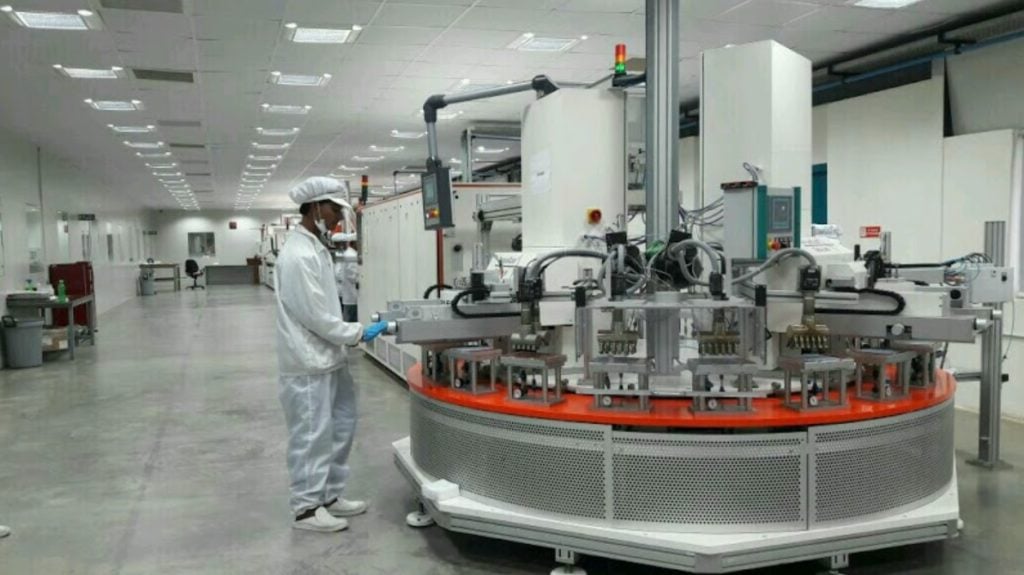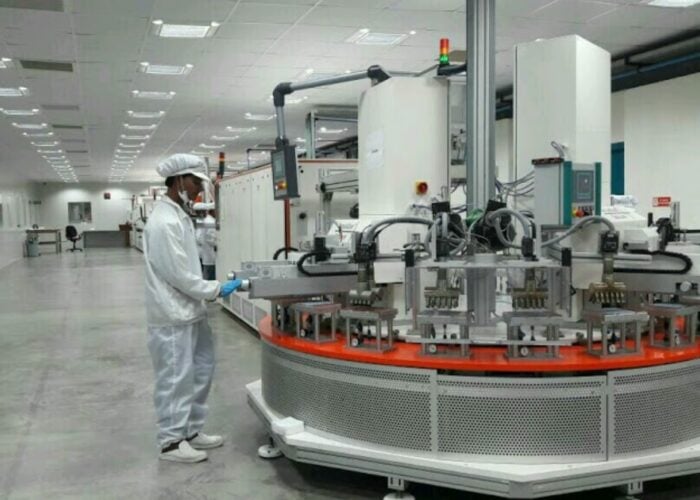
India’s government is to provide a further Rs19,500 crore (US$2.6 billion) of funding for its PV manufacturing Production Linked Incentive (PLI) scheme, with the country intent on spurring further development of a domestic solar manufacturing base.
Indian Minister of Finance Nirmala Sitharaman said the additional funding included within its Union Budget for the forthcoming fiscal year, which was expected after an announcement in November, would be used to “facilitate domestic manufacturing” as India strives to achieve 280GW of installed solar capacity by 2030.
Try Premium for just $1
- Full premium access for the first month at only $1
- Converts to an annual rate after 30 days unless cancelled
- Cancel anytime during the trial period
Premium Benefits
- Expert industry analysis and interviews
- Digital access to PV Tech Power journal
- Exclusive event discounts
Or get the full Premium subscription right away
Or continue reading this article for free
The PLI scheme was implemented in April last year by the Ministry of New and Renewable Energy and aimed to incentivise companies setting up integrated, higher capacity, high efficiency solar module plants in India.
Initially backed to the tune of Rs4,500 crore (US$616.8 million), the latest funding made available dwarfs its previous budget, increasing it more than four-fold as India seeks to challenge the dominance of China in the solar PV manufacturing industry.
The PLI requires applicant manufacturers set up a plant with a minimum capacity of 1GW, while the maximum capacity that can be awarded to one recipient is 50% of their bid capacity or 2GW, whichever is less.
Modules produced by the PLI beneficiaries must have a minimum efficiency of 19.5% with temperature coefficient of Pmax better than -0.30%/°C, or an efficiency of 20% with temperature coefficient of Pmax equal to or better than -0.4%/°C.
Sitharaman said under the new budget, priority would be given to “fully integrated manufacturing units from polysilicon to solar PV modules”.
India’s solar module manufacturing capacity is currently 8.8GW, while cell manufacturing capacity is 2.5GW.
The news of significantly more funding under the PLI scheme will be welcomed by large swathes of the solar sector, with India recently being the centre of much solar activity.
At the start of the year, Reliance Industries committed to investing US$80 billion over 10-15 years to establish 100GW of renewables and set up green technology manufacturing facilities in the state, including integrated solar PV module manufacturing via polysilicon, wafer and cell manufacturing.
Just prior to this, Tata Power Renewables’ president Ashish Khanna told PV Tech Premium about the “huge potential” for solar manufacturing in India.
More recently, Indian PV encapsulant and backsheet manufacturer RenewSys brought its encapsulant production capacity up to 3GW with the commissioning of a new production line, with the company eventually targeting 11GW as companies in all stages of the PV supply chain look to ramp up production.
PV Tech Premium has broken down the key mechanisms and avenues available to businesses looking to set up manufacturing facilities in India as well as laying out the instruments for investing in the country’s growing solar sector more broadly.
At COP26, India committed to have 500GW of renewable capacity, accounting for 50% of its energy mix, by 2030 and said it would aim for net zero by 2070, in line with what most analysts thought was possible given its population, projected growth and expected energy needs.






